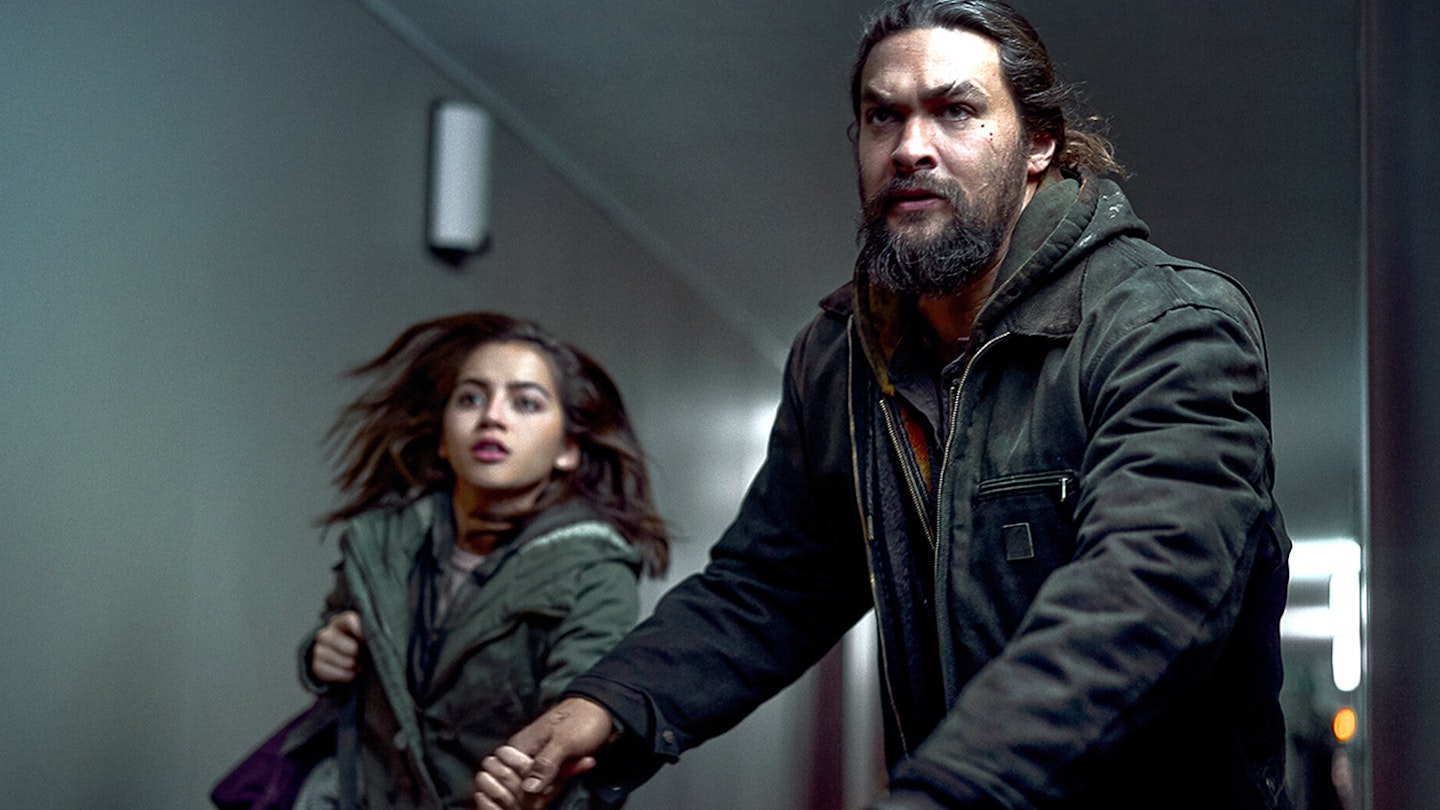Taking a straight thriller set-up and injecting it with warnings about the evils of Big Pharma is nothing new — genre elements sweetening the bitter pill of polemics against medical business practices that leave lives in tatters. But where, say, The Fugitive perfectly balanced its pulse-pounding set-pieces with the uncovering of a corporate conspiracy, Netflix’s Sweet Girl feels like an off-brand alternative that’s no way near as effective.

Here, the drug is Spero, a cancer medicine nearing approval which could save the life of patient Amanda (Adria Arjona) — before being pulled from the market thanks to some dodgy backroom dealings. In the wake of her subsequent death, husband Ray (Jason Momoa) and daughter Rachel (Isabela Merced) power through their grief in the gym and try to get to the heart of why the medicine was never made available — uncovering behind-the-scenes corruption that leaves them on the run from hit men, wealthy corporations, and the law.
The action makes the most of Jason Momoa's burly physicality, but the fight sequences lack spark or originality.
Jason Momoa is the perfect kind of action star for a revenge brawler, but while Sweet Girl’s action sequences make the most of his burly physicality — laying smackdowns against goons with believable ease and taking some hefty blows himself — the fight sequences lack spark or originality. A public transport beatdown is less satisfying — and way less fun — than an equivalent sequence in this year’s Nobody. As a leading man, Momoa has reached the stage of his career where he can basically play himself — his trademark earthy rock-god aesthetic remains here, and if he weren’t bone-dry the entire time, he could have strolled straight off an Aquaman set. He holds the screen well, though, with moments of emotional resonance — his heartbroken howls when Amanda passes away are palpably guttural. Isabela Merced continues to be one to watch too, an engaging co-lead who gets her own fair share of the action here, in a gritty step up from 2019’s Dora And The Lost City Of Gold.
But around the pair, everything crumbles. The script is hopelessly hokey, full of naff dialogue (“If my wife dies, it’s your death sentence,” Ray grumbles to a pharmaceutical representative), predictable tropes and thin characters. Its attempted skewering of Big Pharma isn’t sharp or smart enough — there’s a conviction that’s laudable, but it never cuts deep. The more earnestly the film tackles its central subject, the sillier it feels — its depiction of a world of sanctimonious speeches and hollow applause becomes cartoonish, but never with the kind of satirical edge that would bring it all to life. Chuck in sluggish pacing and an eye-roll-worthy final act development, and this one was probably better off not making it to market.

